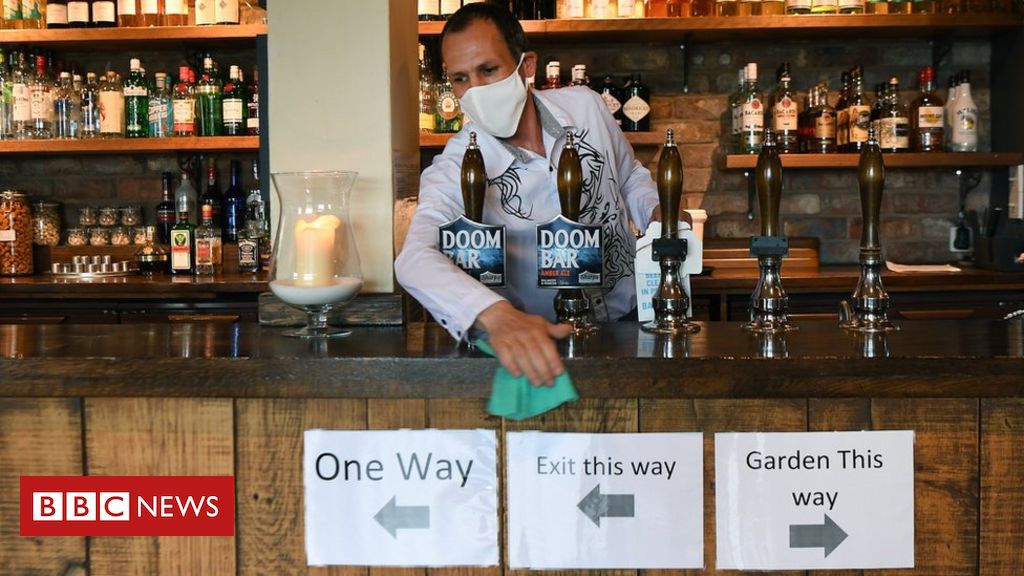The UK economy grew by 6.6% in July, according to official figures, but output remains far below pre-pandemic levels.
It is the third month in a row that the economy has expanded.
But the Office for National Statistics (ONS), said that the UK “has still only recovered just over half of the lost output caused by the coronavirus”.
Hairdressers, pubs and restaurants contributed to growth after companies were allowed to reopen in July.
However, the UK’s economy is still 11.7% smaller than it was in February and growth in July was smaller than the 8.7% expansion seen in June.
Thomas Pugh, UK economist at Capital Economics, said the reopening of restaurants and pubs meant the accommodation and food services sector “rose by a whopping 140.8%” between June and July.
And while he expects the Eat Out to Help Out scheme to provide a further boost in August, “now that most sectors in the economy are open again there is little scope for further large rises in monthly GDP”.
Up, up, but not away. The UK economy continued a sharp recovery from lockdown in July, growing by a bumper 6.6% in the month. But the rate of recovery was a little slower than in June, raising some concerns about the ongoing strength of the bounce back.
The economy is still nearly 12% smaller than before the pandemic crisis, and has recovered just over half of the lost output during the shutdowns.
While the third quarter is on course to see a record number for growth and the official end of recession, fears remain that the recovery could peter out.
Business groups continue to push for extensions to government support packages that are due to close. The figures in July reflected the partial reopening of retail, manufacturing, and some public sector activities such as schools.
The UK fell into recession after activity shrank for the first and second quarters of this year after the government announced a lockdown to stop the spread of the coronavirus.
Mr Pugh questioned how strong the UK’s recovery would be throughout the rest of the year.
“Talk of tax rises at the next Budget, a further deterioration in the Brexit negotiations and a worrying rise in the number of virus cases and tighter social distancing restrictions will all conspire to slow the recovery even further,” he said.

